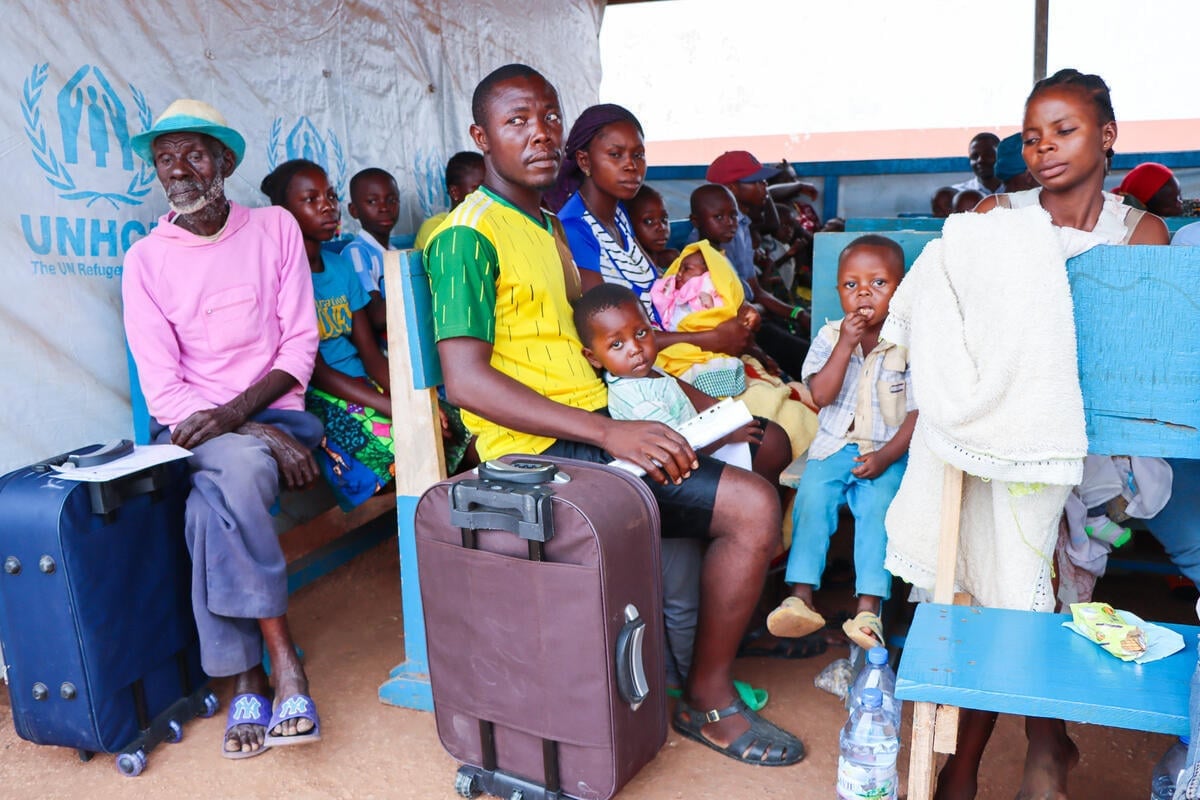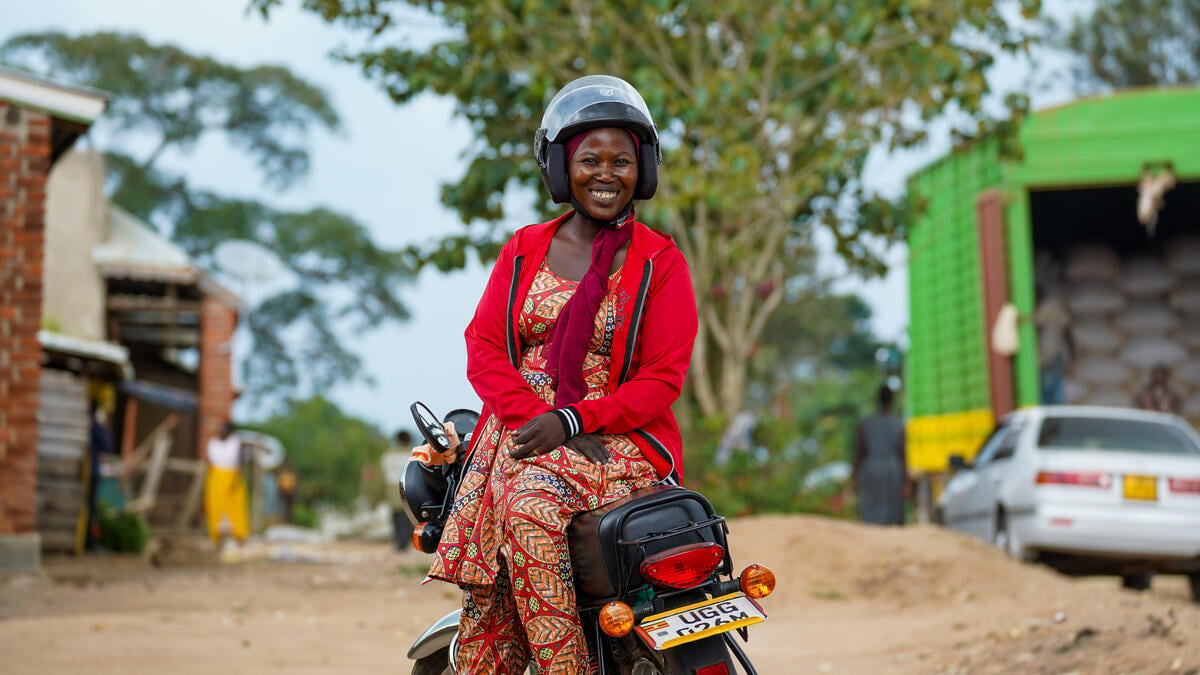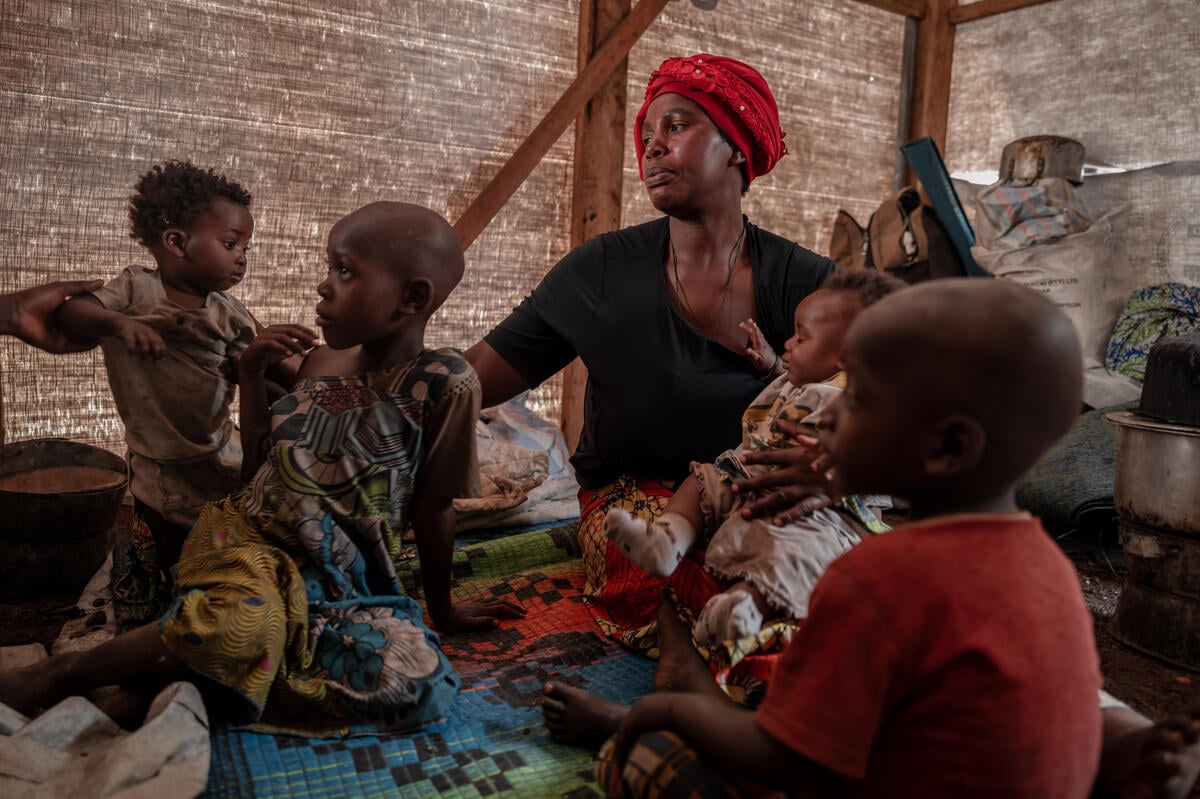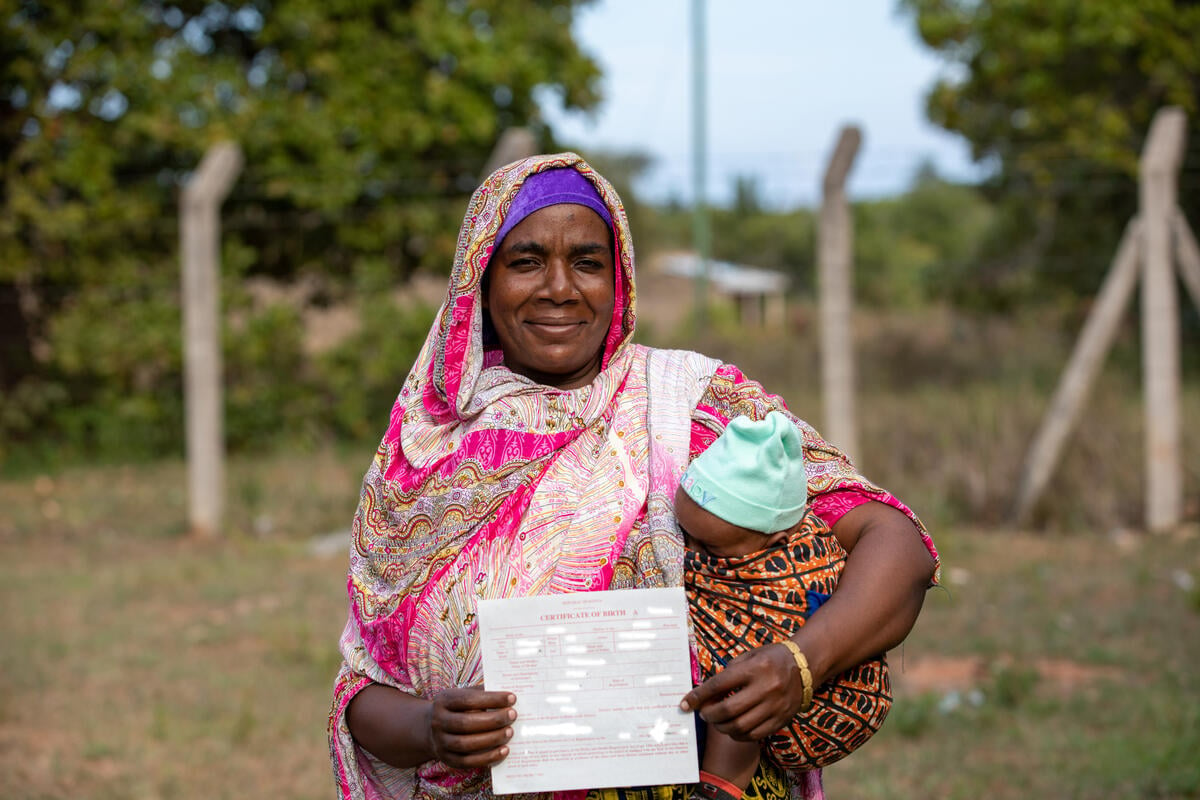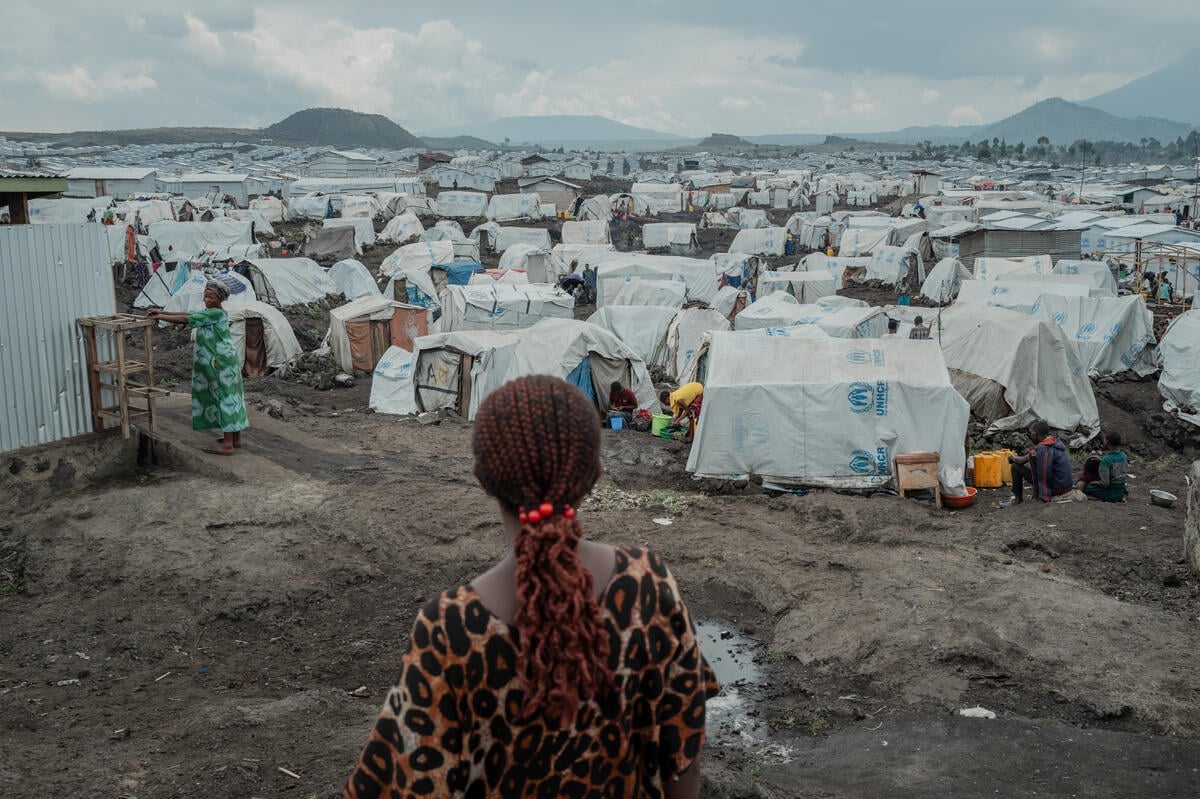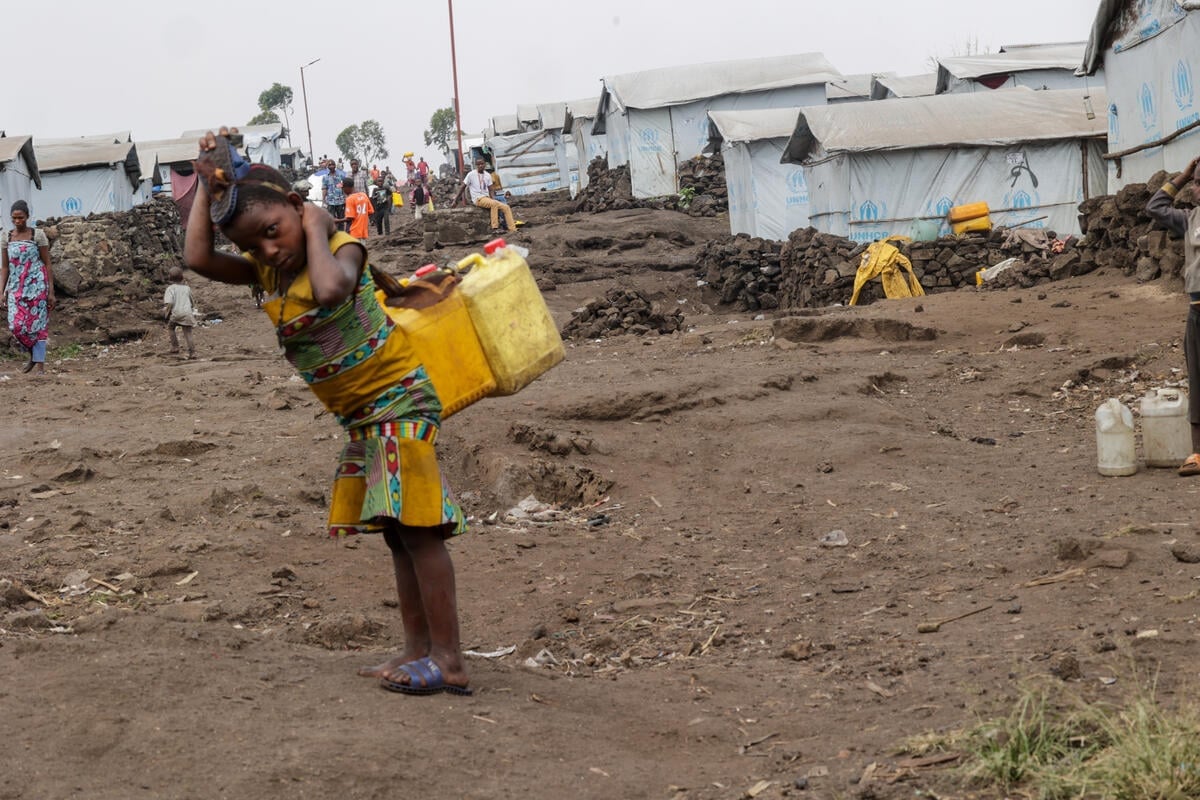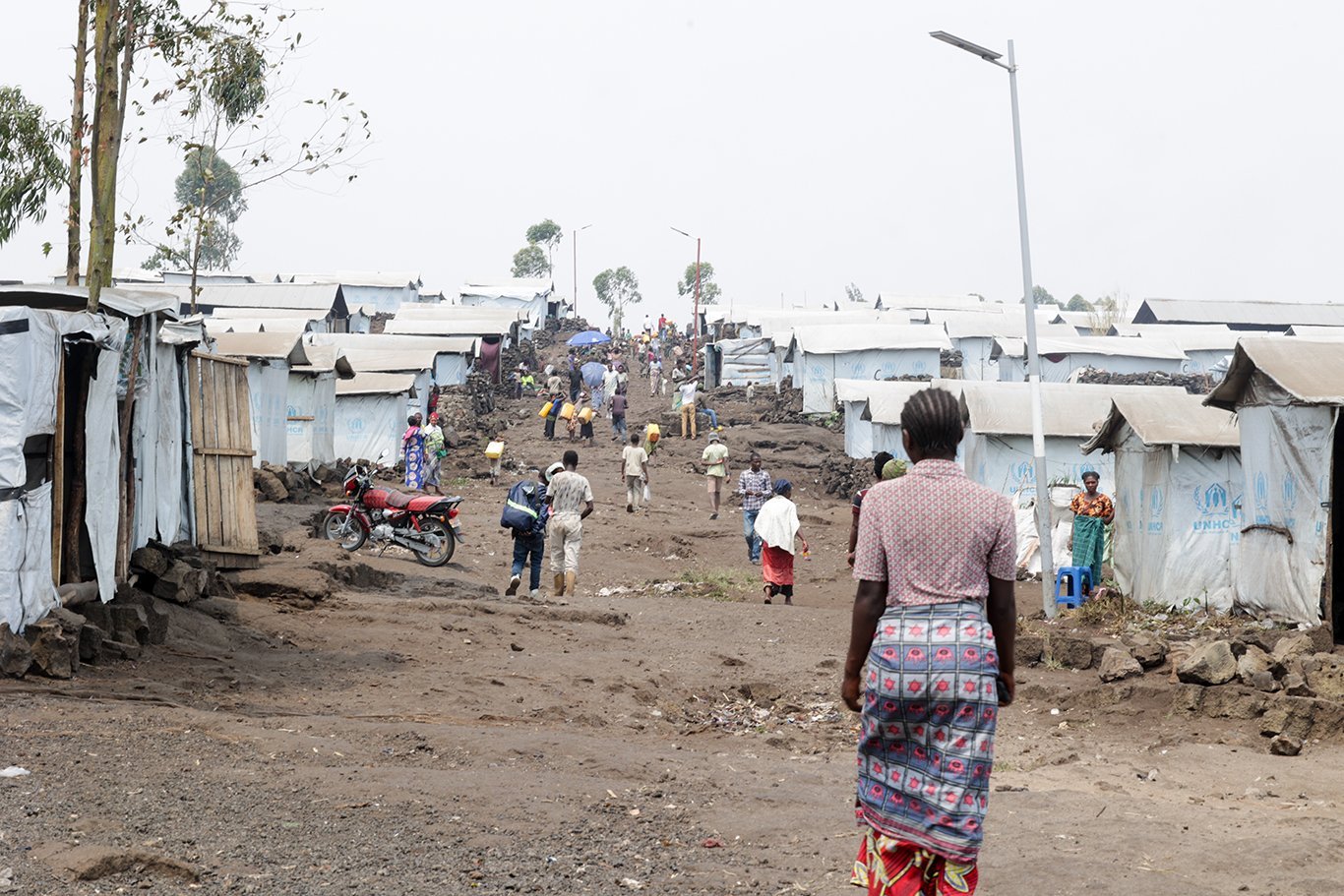Pressure continues for DR Congolese refugees in Rwanda to go home
Pressure continues for DR Congolese refugees in Rwanda to go home
KIGALI, Rwanda, September 20 (UNHCR) - While the controversial repatriation of Congolese refugees from two camps in Rwanda has slowed in recent days, there are still signs of continued pressure to go home amid fears that the forced returns may have spread to other parts of Rwanda.
More than 8,500 Congolese of Tutsi origin have returned to the Democratic Republic of the Congo (DRC) from two Rwandan camps - Kiziba in Kibuye province and Gihembe in Byumba province - since the government of Rwanda and the rebel group, Congolese Rally for Democracy (RCD-Goma), started a controversial repatriation operation on August 31. Many of the returnees said they had gone back under duress.
On Friday, the UN refugee agency expressed grave concerns after hearing allegations by Congolese refugees in Rwanda that local authorities and officials of rebel group RCD/Goma are encouraging able-bodied men to return and establish security in north Kivu, eastern DRC. North Kivu is under the control of RCD/Goma.
"They are asking all able-bodied men to repatriate and secure the area," a 20-year-old Congolese refugee complained angrily to UNHCR in Rwanda's Byumba province on Wednesday.
A non-governmental organisation (NGO) that runs education programmes in Kiziba and Gihembe camps has reported that local authorities have refused to authorise the re-opening of schools. Local authorities say the re-opening, originally scheduled for early September, will impede the ongoing repatriation and amount to "hostage-taking" of pupils. The NGO has been encouraged to run schools outside the camps as the re-opening of schools inside the camps would require "authorisation from higher authorities", it was told.
Meanwhile, information posters distributed throughout the camps to inform refugees that the return operation being managed by the government of Rwanda should be voluntary, have been torn down. UNHCR had posted more than 1,000 posters in both camps, which host some 32,000 refugees.
The pace of the repatriation movement has slowed in recent days. In Gihembe camp, no departure has been recorded since Wednesday while the last departures from Kiziba camp date back to September 10. But UNHCR staff continue to receive accounts from refugees about intimidation, including the continued and questionable presence of RCD-Goma officials in Kiziba camp.
There are fears that the forced repatriation may have spread beyond the Rwandan refugee camps to Congolese refugees spontaneously settled in towns and villages near the DRC border.
On Tuesday afternoon, UNHCR staff saw a commercial truck packed with families and their personal effects crossing the border from Rwanda's Gisenyi province to the DRC border town of Goma. According to the North Kivu provincial official in charge of refugee affairs, these families were Congolese of Tutsi origin who had paid for their own transport to return home after years in exile. UNHCR could not confirm if their return was voluntary.
There are also reports of refugee families leaving Rwanda's Ruhengeri province, less than 100 km from Goma.
Most of the returnees to DRC have been settled by the RCD/Goma rebels in Kitchanga, a village about 80 km north of Goma. Due to the difficult living conditions there, some of them have been going back to their camps in Rwanda. On Wednesday, UNHCR interviewed a group of 20 Congolese who had returned to Kiziba camp to escape the hardships in Kitchanga. These refugees stated that they had returned individually, leaving their families behind because they could not afford transport fees for the entire family.


